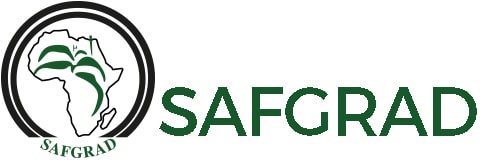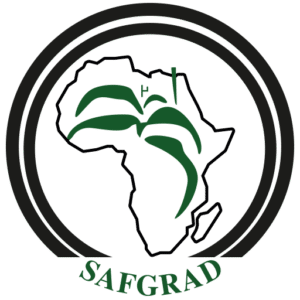Guidelines for inclusive agricultural value chains development in Africa
1. Introduction
The African Union Commission (AUC) as the Secretariat of the African Union (AU) is charged with the responsibility of implementing the Decisions and Declarations of the Assembly of African Heads of State and Government (HoSG). These Declarations are aimed at advancing Africa’s integration and sustainable development as enunciated in the Continental development blueprint- Agenda 2063- The Africa we want. The agricultural sector is commonly refer to as the backbone of most African economies due to its role in reducing hunger and poverty, providing employment and sustainable livelihoods for majority of people, and as growth engine for industrialization and general economic development. It was against this backdrop that African HoSG, through the 2014Malabo Declaration, defines the immediate future of African economy around agricultural growth and transformation to achieve shared prosperity and improved livelihoods. For impact, these continental Decisions must be operationalized and internalized at regional and national level. The agricultural investments plans at the regional (RAIPs) and national (NAIPs) levels represented the operational blueprints and the incorporation of these Declarations in the investment plans is important in their internalization process.
2. Assignment Scope
The AUC through its Specialized Technical Office (STO) of Semi-Arid Food Grains Research and Development (AU-SAFGRAD) is in the process of elaborating a guidelines document to support MS in developing their inclusive agricultural value chains. The continental guidelines are intended to reinvigorate MS interest and guide implementation process in developing competitive and inclusive value chains. The guidelines will guide agricultural investments Plans (AIPs) processes for value chains development. This will ensure that value chains are not only efficient and sustainable but, also, inclusive to ensure that majority of the vulnerable populations are not by-passed. As a continental blueprint, the guidelines must be evidence based and built on best practices; taking into consideration the specific and general peculiarities, across the continent. The guidelines are expected to promote best practices from the chain-wide approaches (farm to fork), highlighting success factors through the analyses of actors and activities. The guideline will therefore, identify and classify policy, technical, financial, market access, pricing schemes, legal, socio-cultural and operational challenges that limit chain efficiency and inclusivity.
3. Objective of the Assignment
The assignment is to develop an evidence based, continental guidelines for inclusive agricultural value chains development in Africa. Specifically, the assignment will:
- Assess previous agricultural value chains development efforts across the continent and highlight the associated challenges and success.
- Propose agricultural (crops, livestock and fisheries) value chains development pathways based on actors and activities performed (farm to fork)
- Identify and relate the environmental and institutional factors needed for successful implementation.
4. Methodology
Considering the COVID-19 pandemic and the constraints related to travels, the assignment will be homebased (desk work) with virtual meetings organized with relevant stakeholders. The consultants will:
- Review relevant documents related to value chains developed by relevant organizations (AU, IFAD, FAO, GIZ, CIAT, USAID, etc.)
- Organize online meetings with the relevant stakeholders/institutions
- Organize regular online meetings with AU-IFAD team who will be overseeing the world.
5. Required Skills
Considering the scope of the study and the deadlines, a team of three (3) consultants; One Lead and two other Consultants, would be engaged for the work. The Lead and the two consultants should have at least ten and seven years working experience respectively. Specifically, Consultants should have research and work experience on value chain analyses and development and a good knowledge of the African agricultural sector and policies. One of the consultants (could be the team leader) should have extensive experience on crops agricultural value chain development. The second consultant should have experience and skills on livestock/dairy value chains, while the third consultant should have experience on the fishery and aquaculture value chains.
6. Duration and Remuneration
The Consultancy will be for a period not exceeding 8weeks (actual workload duration should not exceed 45days). African Union shall pay the Consultants’ fees on a lump sum basis as professional fees. The Consultants will The Lead Consultant will be paid sixteen thousand (USD 16,000) while the two other consultants will, each, be paid thirteen thousand (USD13,000). The payment will be made through bank transfers only in three tranches (20:40:40). Payments are due at the submission and approval by the Coordinator AU-SAFGRAD of the reports which should be in English language. The inception report should be submitted to AU-SAFGRAD one week after commencement of the assignment (signing of the contract). It is expected that the inception report would detail the approach and methodology that the consultants will apply in the execution of the assignment and a detailed work plan specifying key activities to be performed covering the duration of the assignment (20%). The draft Report should be submitted 6 weeks after the submission of the Inception Report. It will provide an update of the key findings based largely on literature review and possibly interviews (40%). The final Report should be submitted at the end of the assignment and validation workshop (facilitated by the team of Consultants) so as to integrate comments received on the draft report( 40%) .
7 . Management
The Consultant(s) will report to the Coordinator, AU-SAFGRAD for all matters relating to the administration of the consultancy. The technical management team will be composed of experts from AUC and the International Fund for Agricultural Development (IFAD). The technical team will supervise the technical quality and delivery of the report. AUC will facilitate the Consultant(s) with letters of introduction to contact persons in Member States and other agencies if requested. AUC and IFAD will also facilitate the consultant(s) access to their published documents related to value chains and markets and to their project reports.
8. Application
Applications are invited from interested Consultants. Submissions from Consultants working as a team are encouraged to apply as working knowledge of more than one AU official languages will be added advantages. The application with attached expression of Interest and CV should be sent to AU-SAFGRAD office through post (261, rue de la Culture BP: 1783 Ouagadougou, Burkina Faso) or e-mail: SayahE@africa-union.org with copy to AgbonlahorU@africa-union.org For any urgent clarification, please contact these numbers Tel: +22625306071 or +22674792723. All applications must be received on or before 1600GMT 20th July 2021.




